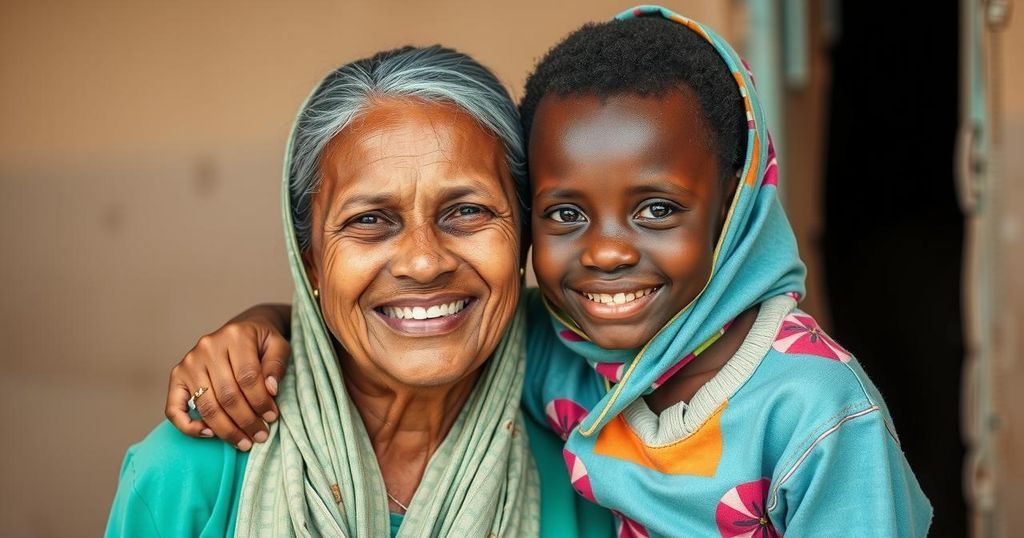South Sudan is facing an influx of individuals with disabilities due to conflicts in Sudan, stressing its already fragile healthcare system. As the country grapples with limited rehabilitation facilities, the Physical Rehabilitation Reference Centre offers vital services to both locals and refugees. The center, supported by the ICRC, promotes sports and economic activities for persons with disabilities while working towards legislative reforms to ensure their rights.
South Sudan is facing an unprecedented influx of individuals with disabilities, primarily due to the continuing conflicts in neighboring Sudan. This surge in demand for rehabilitation services, particularly artificial limbs, has led to heightened pressure on South Sudan, which has limited specialized orthopedic facilities, with only three centers available to serve the needs of its growing population of injured individuals.
Ladu Jackson, a 23-year-old amputee football player, exemplifies this challenge. After a tragic accident at the young age of nine, which resulted in the amputation of his left leg, Jackson struggled to find his place in a world where he could no longer play his cherished sport, football. Through the assistance of the Physical Rehabilitation Reference Centre in Juba, established in 2009, Jackson was able to discover amputee football, rejuvenating his passion for the sport despite his disability.
The Juba-based prosthetic and orthotic center, supported by the International Committee of the Red Cross (ICRC), not only caters to South Sudanese individuals like Jackson but also accommodates refugees fleeing from violence in Sudan. Uwar Bosco, the center’s head, noted an exponential increase in patients due to conflicts and road accidents that necessitate intervention. One notable case is Adam Ahamed Mohamed, a Sudanese refugee who lost his leg due to gunfire before receiving a prosthetic leg at the center.
The rise in incoming refugees has exerted considerable stress on South Sudan’s already fragile healthcare system, further compounding challenges emerging from the nation’s history of civil strife. James Ochan, a disability inclusion adviser, reported that the center has already recorded 2,549 patients from January to October this year, with the influx largely attributed to the intensified civil unrest in Sudan. With South Sudan’s ratification of the U.N. Convention on the Rights of Persons with Disabilities in February 2023, there are efforts underway to ensure equal opportunities and rights for individuals with disabilities while promoting their reintegration into society.
In addition to providing prosthetics, the center actively encourages sporting activities, such as wheelchair basketball and amputee football, thereby fostering a sense of normalcy and community among individuals with disabilities. Furthermore, South Sudan is in the process of developing a disability act to affirm the rights and protections of these individuals, fostering hope for a more inclusive future.
The ongoing conflict in Sudan has caused a significant displacement of individuals, many of whom have suffered severe injuries resulting in disabilities. As they seek refuge in South Sudan, the country’s healthcare infrastructure is being stretched thin, particularly in the area of rehabilitation services. South Sudan has a limited number of specialized centers that can provide the necessary support for amputees and others with disabilities, making the situation exceedingly dire. The centers not only assist local populations but also cater to the victims of humanitarian crises spilling across borders. The increasing number of patients significantly impacts the delivery of care and rehabilitation services.
In summary, the ongoing conflict in Sudan is catalyzing a crisis in South Sudan where healthcare services, especially for individuals with disabilities, are becoming increasingly overwhelmed. The contributions of rehabilitation centers, particularly in providing prosthetic limbs and promoting social reintegration, are vital. Moreover, the active promotion of sports and the impending disability act signify a growing recognition of the rights of persons with disabilities, setting the stage for increased support and recognition in South Sudan.
Original Source: www.voanews.com







